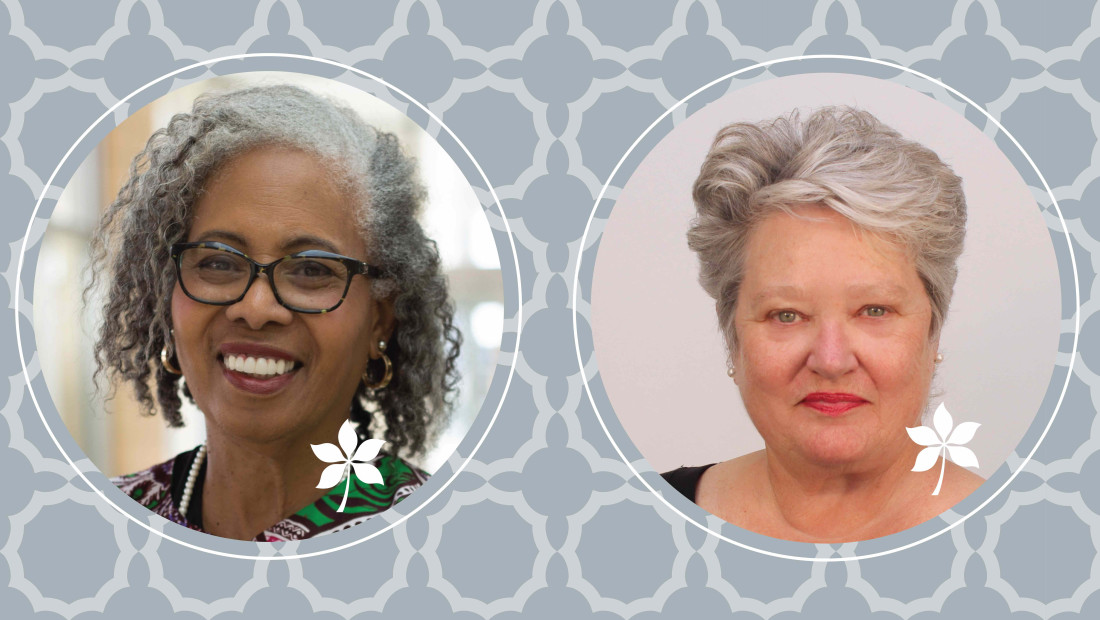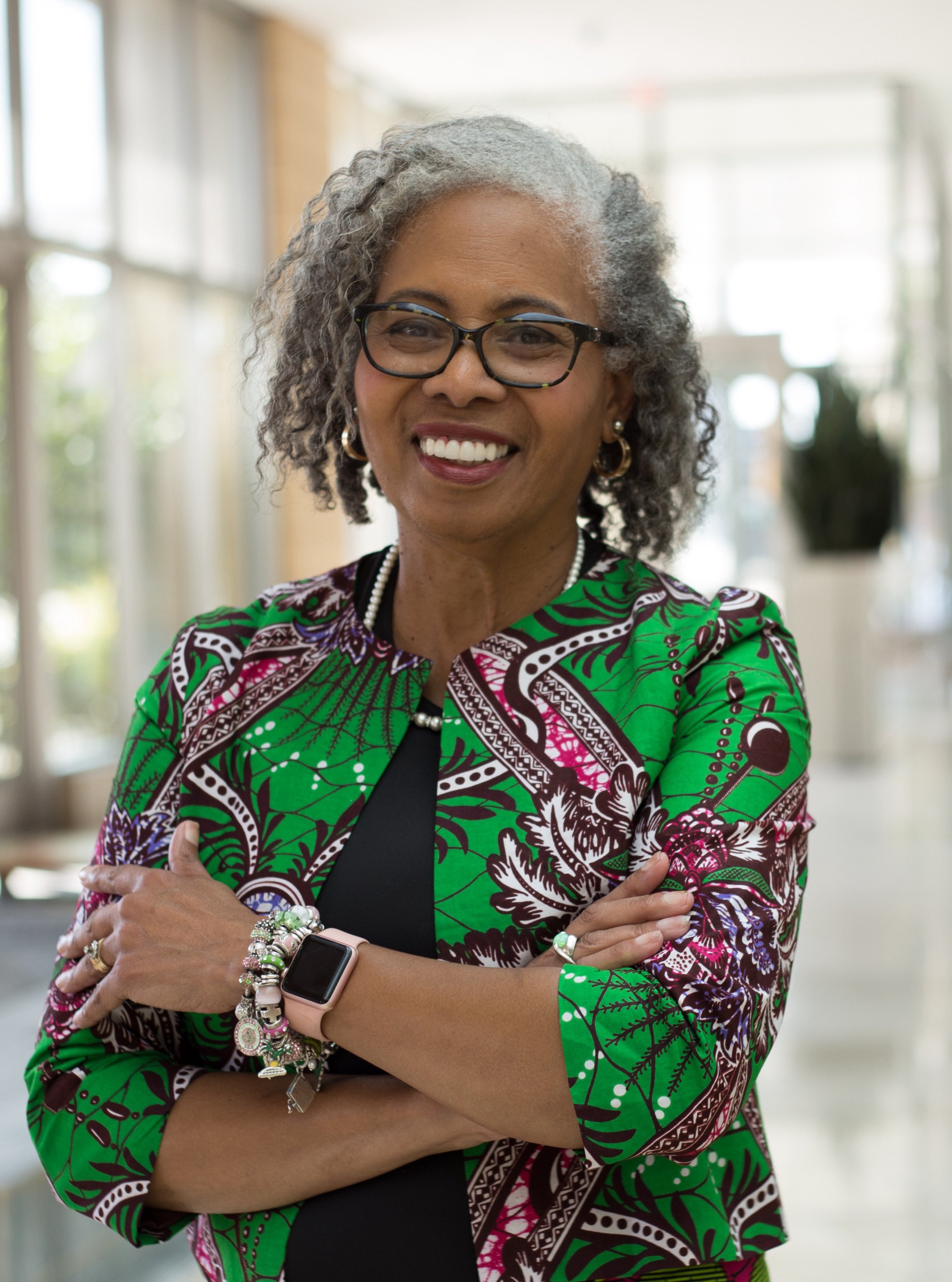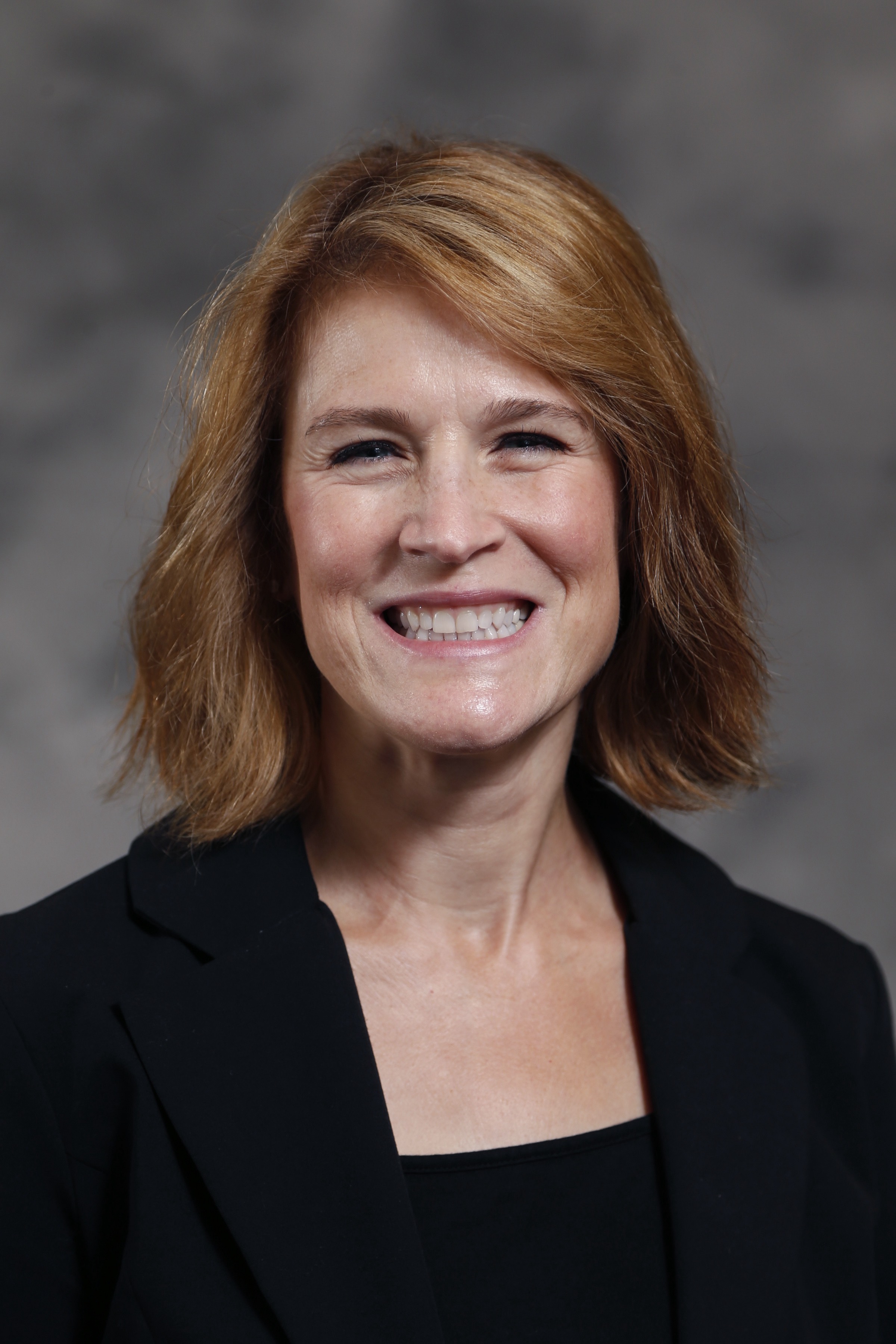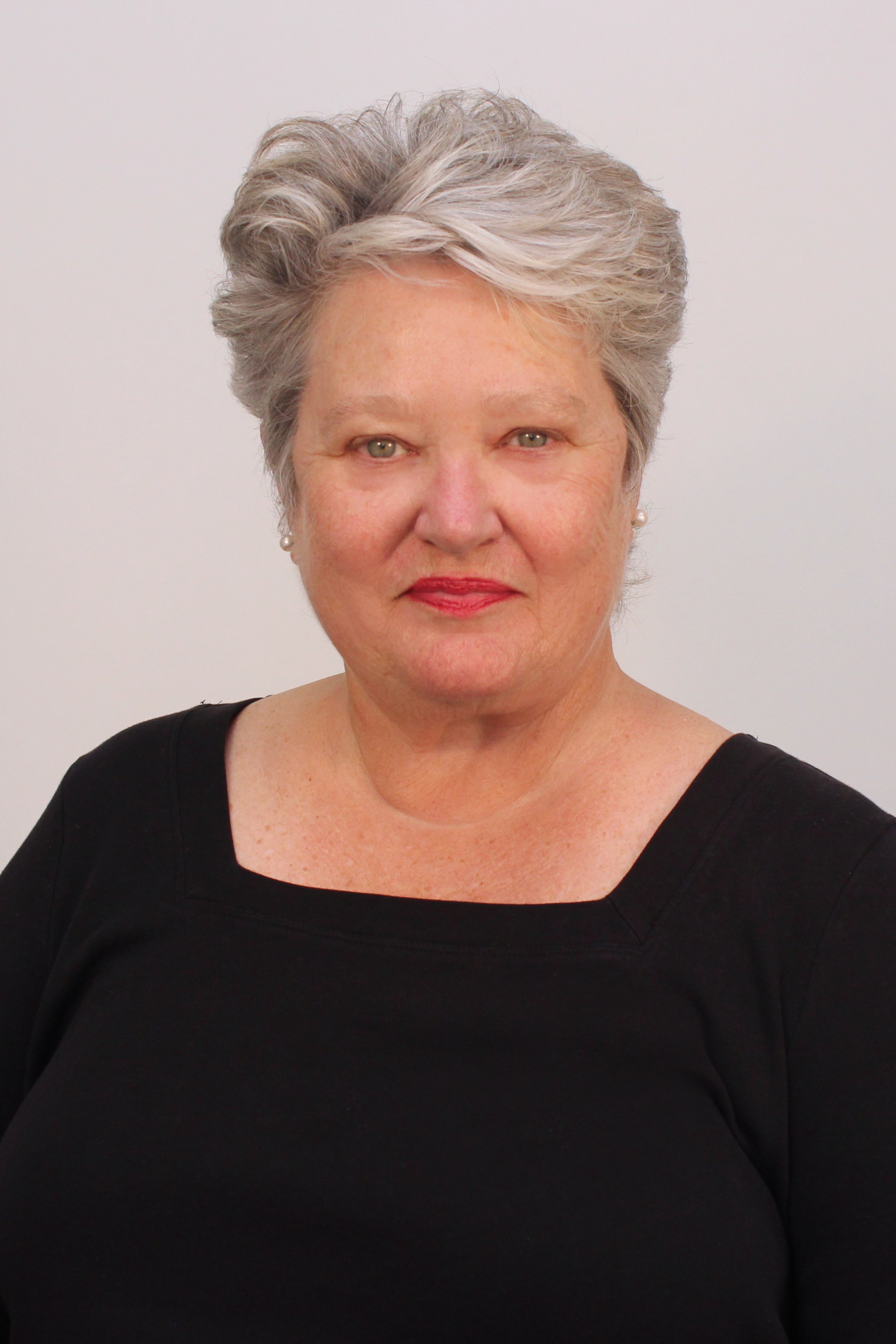
Themed “Advancing Qualitative Inquiry Toward Innovation, Equity, Diversity and Justice,” will be held virtually beginning at 4 p.m. EST on Wednesday, June 7 and ending Friday, June 9, 2023. Gloria Ladson-Billings' keynote will be in person for those who wish to attend, as well as virtual.
Elevate your qualitative inquiry expertise at the Advanced Methods Institute
When academic researchers across disciplines hear the names of emeriti professors Gloria Ladson-Billings and Patti Lather, they take notice. The pair created seismic shifts over the years in how to conduct research that makes a difference. Lather is one of the most prominent qualitative scholars in the United States, and Ladson-Billings is being recognized at this event for her emphasis on diversity and cultural responsiveness.
In recognition of Ladson-Billings’ iconic status, the college will honor her with its Patti Lather Distinguished Award for Qualitative Inquiry, to be presented by Lather herself. Ladson-Billings will deliver the accompanying keynote lecture to launch the college’s June 7-9 Advanced Methods Institute.
Ladson-Billings’ lecture will be livestreamed for participants of the institute who chose the virtual option. Those attending the institute on the Columbus campus may hear Ladson-Billings speak in person based on room capacity (registration required).
The institute theme this year is Advancing Qualitative Inquiry Toward Innovation, Equity, Diversity and Justice. A host of experts will speak on new approaches to qualitative inquiry as well as contemporary updates to existing methodologies and methods.
Gloria Ladson-Billings: Building on legacies, growing success
 Ladson-Billings is legendary in the field for her emphasis on culturally responsive research using mixed methods, in which she intentionally connects qualitative and quantitative approaches.
Ladson-Billings is legendary in the field for her emphasis on culturally responsive research using mixed methods, in which she intentionally connects qualitative and quantitative approaches.
As the retired Kellner Family Distinguished Professor of Urban Education at the University of Wisconsin – Madison, a Fellow of the American Education Research Association and of more organizations, as well as currently the Distinguished Visiting Scholar of Race and Social Justice at the Graduate School of Education, Rutgers University, she is invited to speak to prestigious audiences around the world.
Much has been written by and about Ladson-Billings, who recently completed a term as president of the National Academy of Education. She speaks eloquently about how her research applies to educational practice and policy.
Her books and articles reveal her research discoveries about teaching practices of educators who ensure positive educational outcomes for African American students. Her interest in research grew after a decade spent teaching science and social studies, first in Philadelphia, then in California.
“(Teaching) helped me understand that one of the most effective ways to affect democracy was through the classroom,” she said in a 2019 retirement interview with the University of Wisconsin - Madison. “I knew too many smart black people and their school outcomes just didn’t make sense.”
During her PhD program at Stanford University, she asked, “What’s actually right with these kids, and what happens in a classroom where a teacher figures out how to get it right with them?’” she said in a 2020 interview with Brava magazine.
“[One was] the [teacher’s] beliefs about the student’s ability and their … own efficacy as a teacher. It was really fundamental in their ability to do the work,” she said. “The second thing is that [effective teachers] had … cultural competence. In other words, they understood that the students came in with language, customs, traditions and ways of being that reflected their home culture — and those teachers didn’t denigrate it.”
Ladson-Billings calls these successful teachers dreamkeepers, which led to the title of her book, The Dreamkeepers: Successful Teachers of African American Children, now in its third edition.
In giving the institute’s keynote, Ladson-Billings will discuss the theory behind her approach to studying teacher pedagogy and how qualitative methods illuminated the subject in a way that other methods cannot.
Penny Pasque: Expanding influence in qualitative research excellence
 Since arriving at Ohio State in 2019, Professor Penny Pasque, director of qualitative methods and the QualLab for the college, has taken the qualitative research approach to a new level, both within and beyond Ohio State.
Since arriving at Ohio State in 2019, Professor Penny Pasque, director of qualitative methods and the QualLab for the college, has taken the qualitative research approach to a new level, both within and beyond Ohio State.
She created the QualLab, a research methodology center with an array of resources aimed at building the capacity of faculty, researchers and graduate students to use cutting-edge qualitative research methods. The focus is on innovation, equity, diversity and justice. Under her guidance, the offerings are growing.
“In addition to the institute, we hosted the popular Unapologetic Educational Research: Addressing Anti-Blackness, Racism and White Supremacy webinar series,” Pasque said, “with alumni experts who graduated from our Department of Educational Studies. And now we have monthly QualLab Lunches, online talks with experts from across the nation.
“We’re working on approval of a new graduate certificate. People are seeking the QualLab out across the country, in fact, internationally, for advice or to contract with us. We had nine countries represented at the 2021 Advanced Methods Institute (AMI). We’re keeping it online for that reason,” she said.
Naming the award and lecture, created in 2021, for Patti Lather honors her qualitative research legacy at Ohio State, Pasque said. “Patti is one of the most prolific qualitative writers of her time. People across fields and disciplines are impressed with her reach and impact in the field. Whether you're in sociology, communication, education or human ecology or medical school, you're citing research by Patti Lather.”
Having Ladson-Billings accept the award and deliver the keynote is an incredible honor, Pasque said. It was Ladson-Billing’s culturally responsive research that served as the theme and foundation for the 2021 AMI and the Advancing Culturally Responsive Research book that resulted.
“Gloria’s work has been so powerful and impactful, having her speak will set the stage for this year’s institute,” Pasque said. “As an esteemed scholar, she epitomizes culturally responsive excellence and impact. The fact that she will let us honor her and her work will be of interest to scholars around the world.”
“It will help us usher in the next generation of researchers and research approaches poised to address the world’s problems.”
Patti Lather to present award named in her honor
 Having retired from the college in 2014 after 26 years, Professor Emerita Patti Lather leaves a legacy. Her 1991 book, Getting Smart: Feminist Research and Pedagogy within/in the Postmodern from Routledge, was well received and adopted across the fields of education and women’s studies. “I was one of the first feminist researchers to bring post-feminist methodology to education,” Lather said.
Having retired from the college in 2014 after 26 years, Professor Emerita Patti Lather leaves a legacy. Her 1991 book, Getting Smart: Feminist Research and Pedagogy within/in the Postmodern from Routledge, was well received and adopted across the fields of education and women’s studies. “I was one of the first feminist researchers to bring post-feminist methodology to education,” Lather said.
Her groundbreaking approach made the book a classic. “For me, it’s the mix of theory and learning from field work that has fed evolving theory,” she said. “Using qualitative inquiry as the driver, I asked what you could learn through the prism of theory informed by data. In other words, what you could learn from talking to people, watching people and analyzing your database, whatever it is.”
In her subsequent studies, Lather also was one of the first to bring deconstructive methods to education research. One study considered Ohio women living with HIV/AIDS.
“The things I learned from those women fed the theory that I developed,” she said. “Deconstruction argues that there's never just one story. There are always multiple stories. It helped people do research differently.”
Her co-authored book, Troubling the Angels: Women Living with HIV/AIDS from Harper-Collins, resulted. It also garnered attention because Lather and her co-author, Chris Smithies, involved the women so they were active participants in the work.
“We wanted to create reciprocal field interactions that were respectful of the people giving us the data. We saw them as partners in the research as opposed to subjects."
Lather’s most recent work is reflected in her chapter in Advancing Culturally Responsive Research and Researchers from the 2021 Advanced Methods Institute keynote.
In the chapter, Lather explores the possibilities of research after humanism, a theory that places humans at the center of everything. “Post-humanism decenters humans, instead seeing that we're part of a much larger network,” she said.
She focuses on post-humanism in looking at anti-Black racism and what it means to be human. “We must ask ourselves, ‘How might a focus on the limits of humanism shed light on race and schooling?’”




